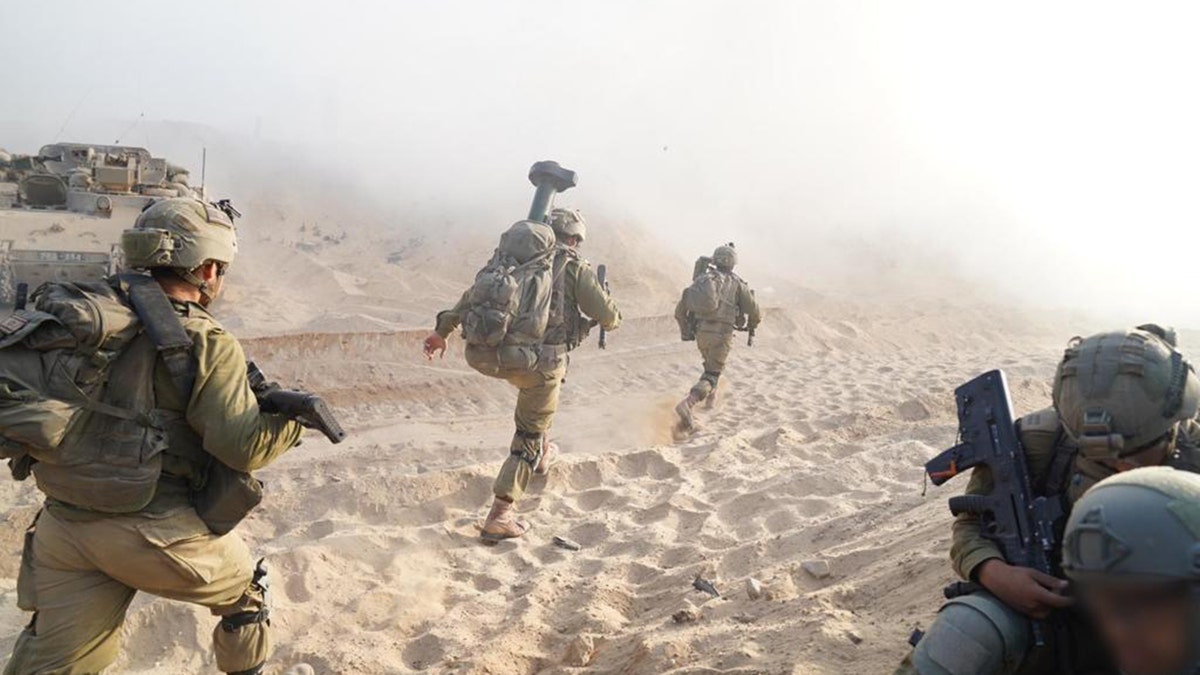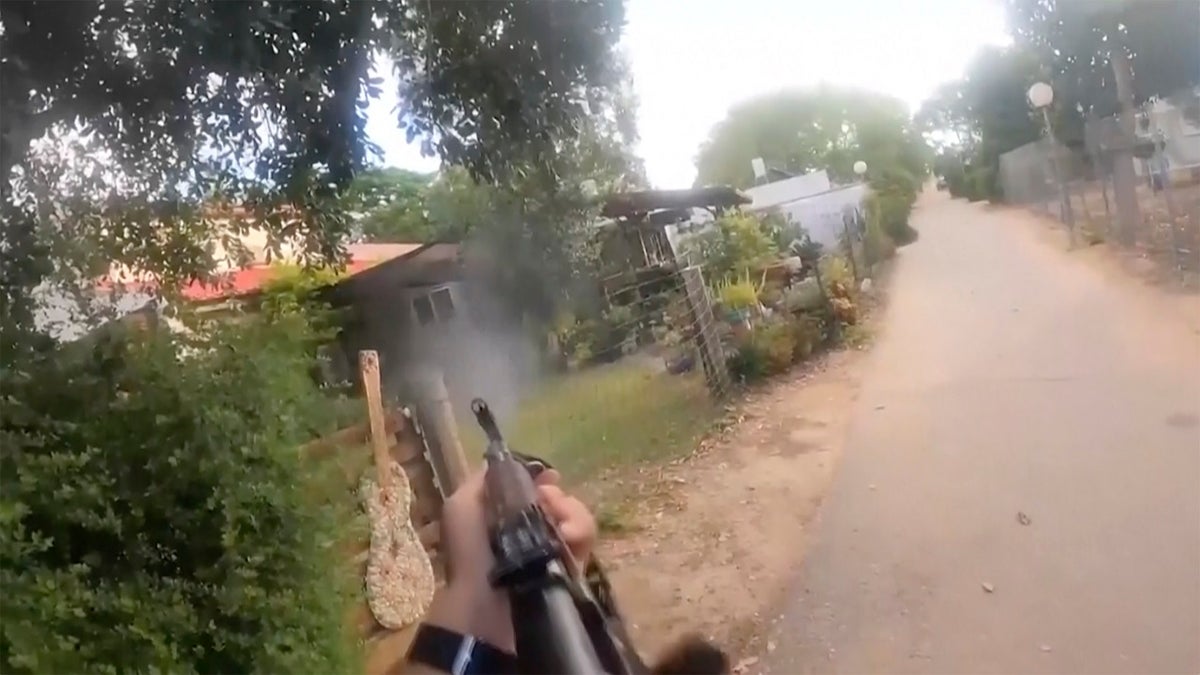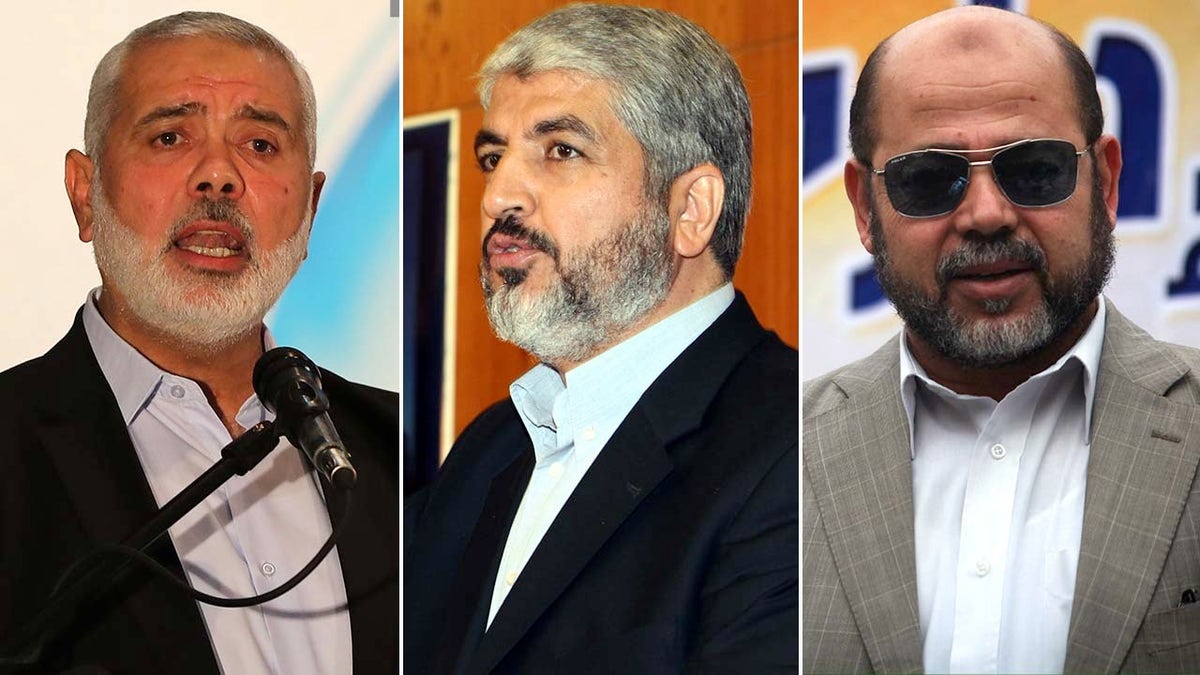Israeli forces destroy entrances to Hamas terrorist tunnels in Gaza
Israeli forces have destroyed 130 entrances to Hamas terrorist tunnels since the war began on Oct. 7, according to the Israel Defense Forces.
The Hamas terror group told The New York Times that it hopes the war with Israel will "become permanent on all the borders" and the Oct. 7 massacre "succeeded in putting the Palestinian issue back on the table, and now no one in the region is experiencing calm."
A Times report headlined, "Behind Hamas’s Bloody Gambit to Create a ‘Permanent’ State of War," featured a subhead that "Hamas leaders say they waged their Oct. 7 attack on Israel because they believed the Palestinian cause was slipping away, and that only violence could revive it."
The terror group achieved violence, killing at least 1,400 civilians including women, children and the elderly while kidnapping hundreds of civilian hostages. Israel has responded with force, and the Times reported that "carnage is not the regrettable outcome of a big miscalculation" but instead a "necessary cost of a great accomplishment — the shattering of the status quo and the opening of a new, more volatile chapter in their fight against Israel."

Israels military has said it has divided Gaza into two parts — North Gaza and South Gaza — as it roots out Hamas from the territory. (IDF)
The Times spoke with Khalil al-Hayya, a member of Hamas’s top leadership body, who told the paper that the terror group "succeeded in putting the Palestinian issue back on the table, and now no one in the region is experiencing calm."
Now, Hamas is hopeful that the entire Arab world will join them in a "permanent" war on the Jewish state.
"I hope that the state of war with Israel will become permanent on all the borders, and that the Arab world will stand with us," Hamas media adviser Taher El-Nounou told the Times.
The Times report added, "The assault was so devastating that it served one of the plotters’ main objectives: It broke a longstanding tension within Hamas about the group’s identity and purpose. Was it mainly a governing body — responsible for managing day-to-day life in the blockaded Gaza Strip — or was it still fundamentally an armed force, unrelentingly committed to destroying Israel and replacing it with an Islamist Palestinian state?"
"With the attack, the group’s leaders in Gaza… answered that question. They doubled down on military confrontation," the Times wrote.

Hamas terrorists killed at least 1,400 civilians, including women, children and the elderly, when they attacked Israel on Oct. 7. (Israel Defense Forces via AP)
New York Times Istanbul bureau chief Ben Hubbard and investigative correspondent Maria Abi-Habib then wrote that the Oct. 7 attack "stemmed from a growing sense that the Palestinian cause was being pushed aside, and that only drastic action could revive it."
"On the surface, the months before the brutal assault seemed relatively quiet in Gaza. Hamas had sat out recent clashes between Israel and other militants, and the group’s political leaders were a thousand miles away in Qatar, negotiating to get more aid and jobs for residents of the impoverished territory," Hubbard and Abi-Habib wrote.
"But the frustration was building. Hamas leaders in Gaza were flooded with images of Israeli settlers attacking Palestinians in the West Bank, Jews openly praying at a contested site customarily reserved for Muslims, and the Israeli police storming the Aqsa Mosque in Jerusalem, a touchstone for Palestinian claims to the holy city. The prospect of Israel’s normalizing ties with Saudi Arabia, long a deep-pocketed patron of the Palestinian cause, appeared closer than ever," they continued. "Then, on a quiet Saturday morning, Hamas attacked."
HOSPITAL USED AS HAMAS UNDERGROUND TERROR HQ LIKELY ISRAEL'S NEXT BIG BATTLE CHALLENGE

From left to right, Hamas leaders: Ismail Haniyeh, Khaled Mashaal, and Abu Marzuk. (Getty Images)
The Times noted it was "clear in advance that Israel would respond by bombarding Gaza, killing Palestinian civilians," but Hamas proceeded anyway.
Al-Hayya told the paper, "What could change the equation was a great act, and without a doubt, it was known that the reaction to this great act would be big" and "We had to tell people that the Palestinian cause would not die."
Notably, the Times didn’t refer to Hamas as a terror group in the report, aside from one mention deep into the article that the United States and other nations have classified it as a terrorist organization.
CLICK HERE TO GET THE FOX NEWS APP
For more Culture, Media, Education, Opinion, and channel coverage, visit foxnews.com/media.




















